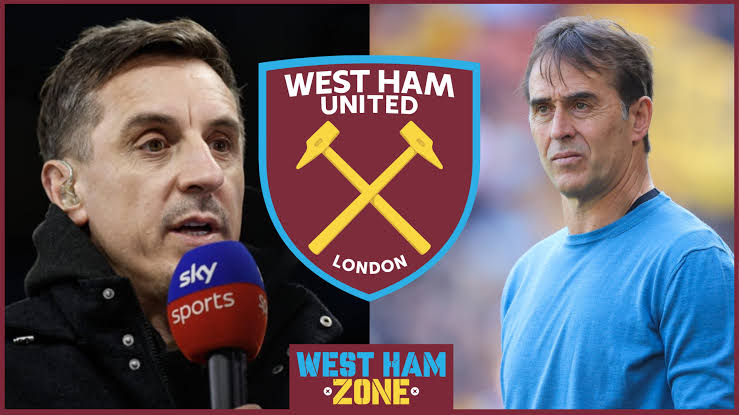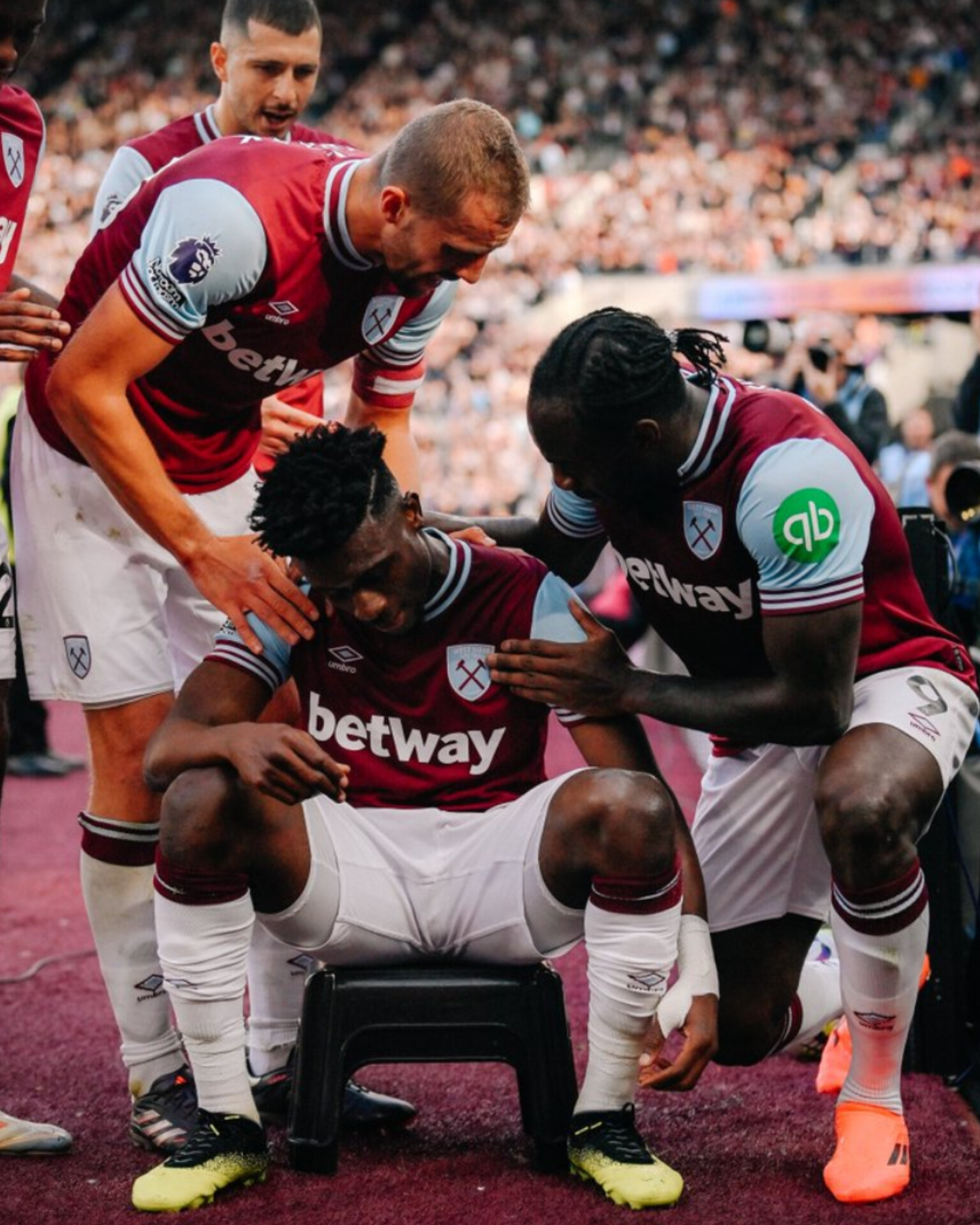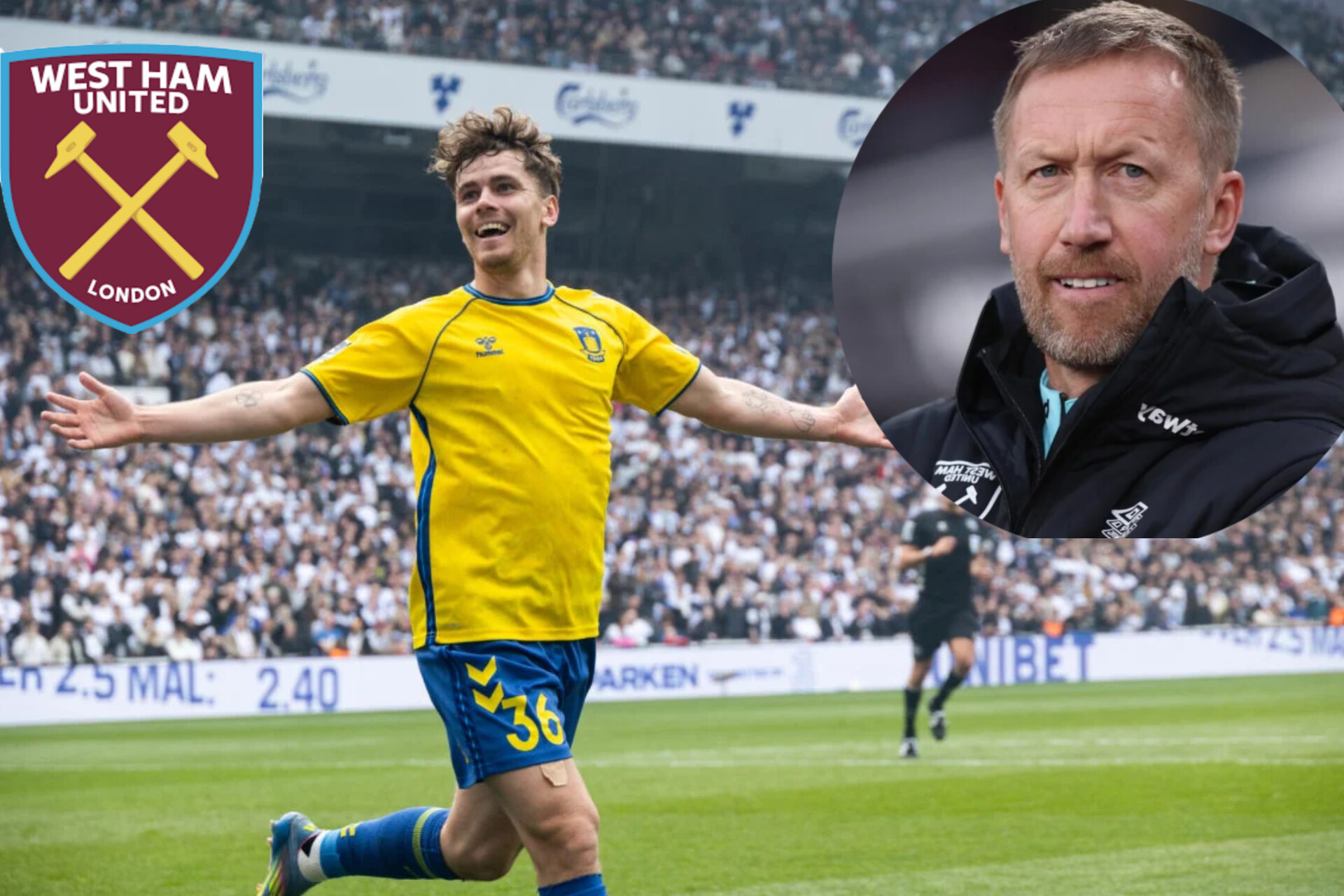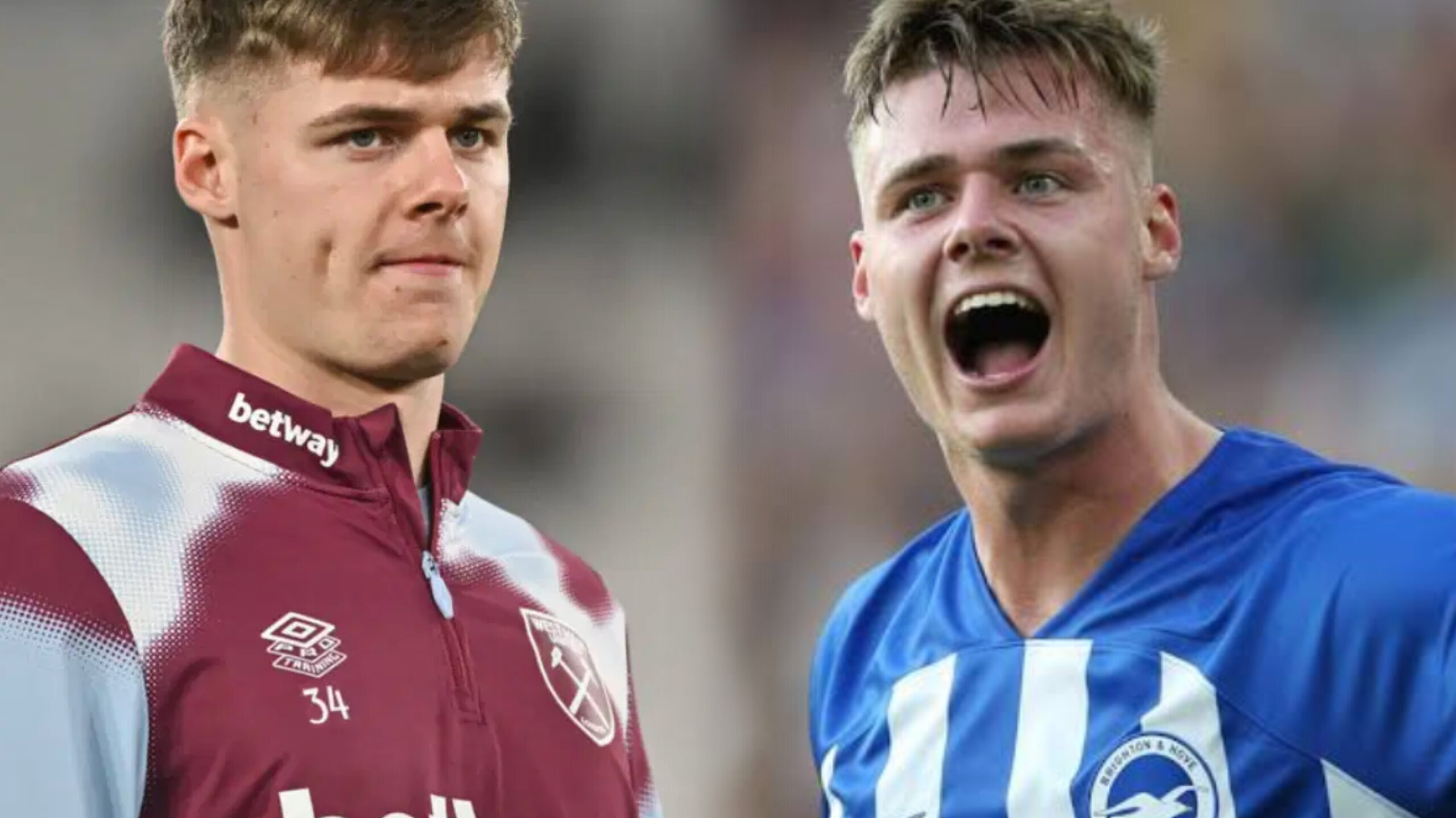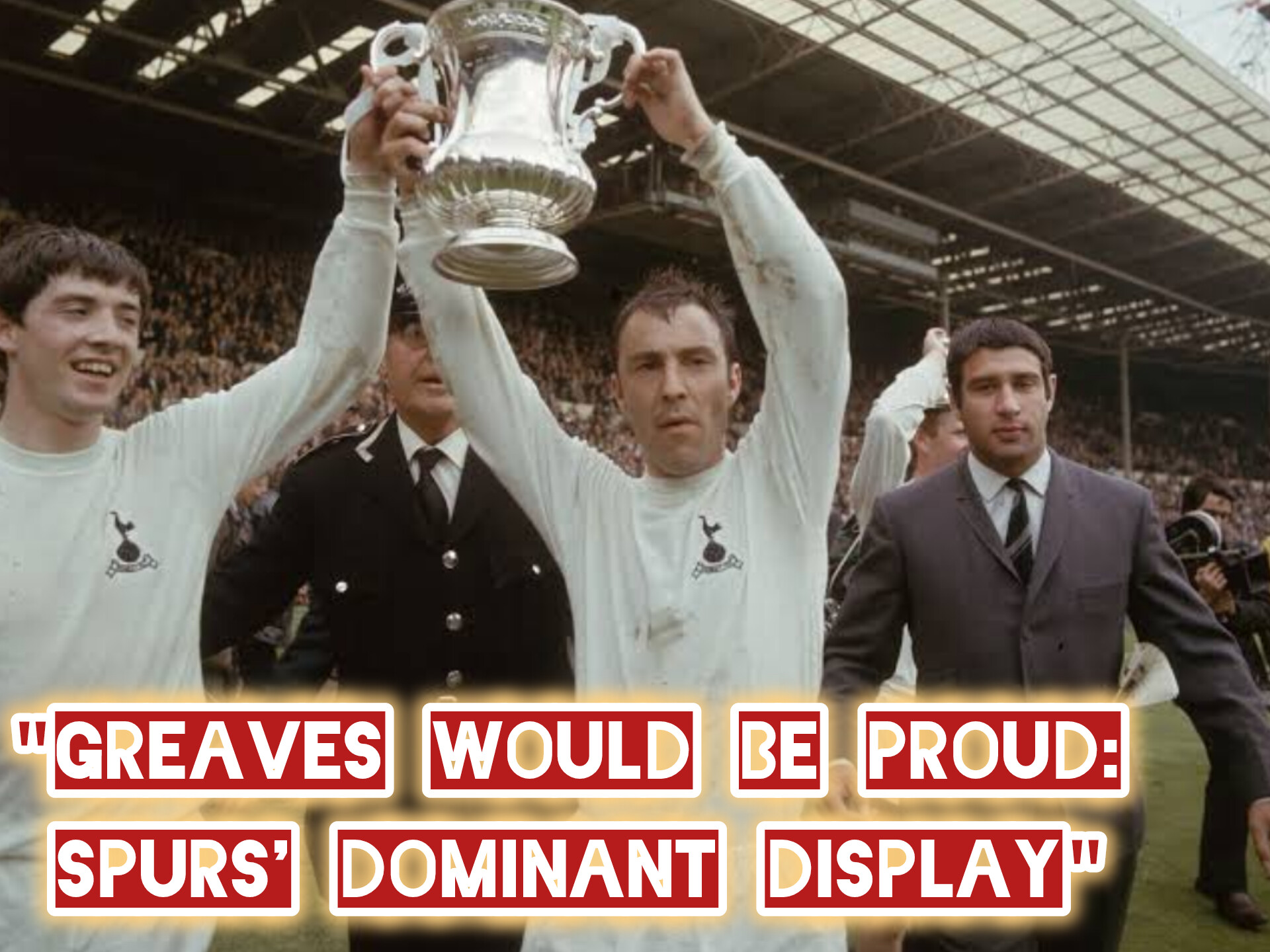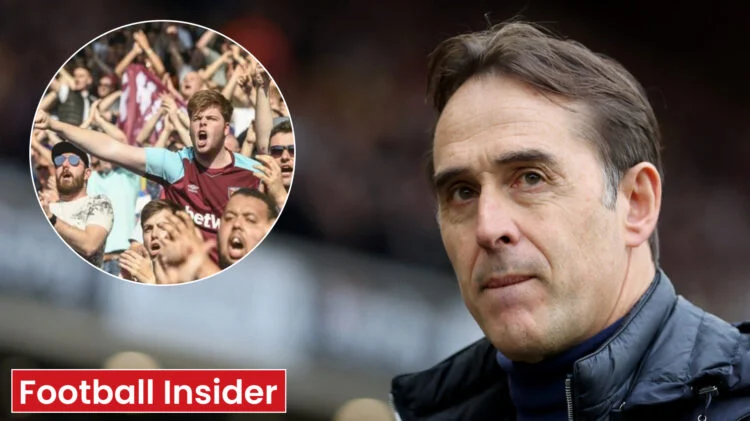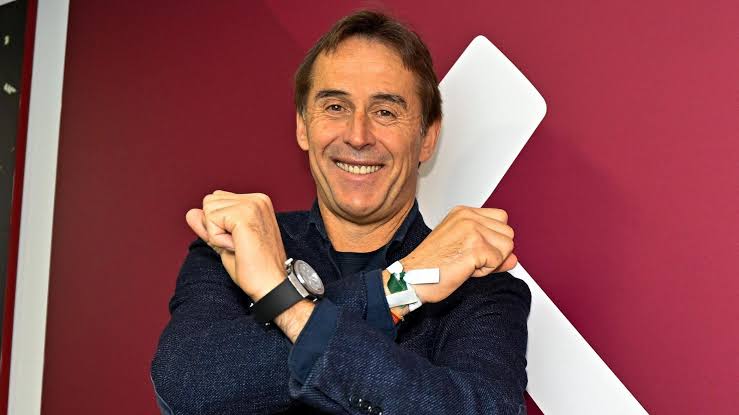The intersection of controversy and officiating in football has taken a new turn with Gary Neville’s extraordinary comments regarding the recent West Ham penalty decision.
While contentious calls have always been integral to football discourse, the VAR era has amplified these discussions to unprecedented levels.
The context is particularly intriguing given West Ham’s historical position as one of the Premier League teams most adversely affected by VAR decisions.
The recent penalty awarded against Manchester United, while debatable due to its relatively soft nature, has sparked an outsized reaction from United supporters who have characterized it as an unprecedented officiating error – a claim that West Ham supporters could readily counter with numerous examples of more consequential decisions that have gone against their team.
What has elevated this incident beyond typical post-match debate is Gary Neville’s remarkable suggestion on his podcast regarding referee David Coote’s psychological state during the decision-making process. The former Manchester United defender proposed an unusual theory about the official’s mindset, suggesting that intimidation from senior referee Michael Oliver might have influenced the call.
“The decision wasn’t right,” Neville stated, before adding a more controversial observation about the referee’s monitor review: “Watching him view it eight times, I was convinced he didn’t believe it was a penalty, yet he reversed his initial call. There’s a possibility that being directed to the screen by Michael Oliver, who’s a commanding presence in the officiating hierarchy, played a role – no one wants to contradict their superiors. From my perspective, Coote seemed far from convinced it was a penalty, making his eventual decision quite surprising.”
This interpretation of events stretches credibility on multiple levels. The suggestion that Premier League officials would be susceptible to such interpersonal pressure seems particularly far-fetched, especially considering that if any institutional bias existed, it would more likely favor Manchester United, given their significant commercial value to the league.
Neville’s attempt to psychoanalyze a professional referee’s decision-making process represents a bold leap, but to publicly broadcast such speculative assertions without supporting evidence pushes the boundaries of responsible punditry even further.
This commentary adds an unnecessary layer of controversy to what was already a contentious decision, potentially undermining confidence in the officiating process while offering little constructive insight into the actual decision-making protocols in place.
